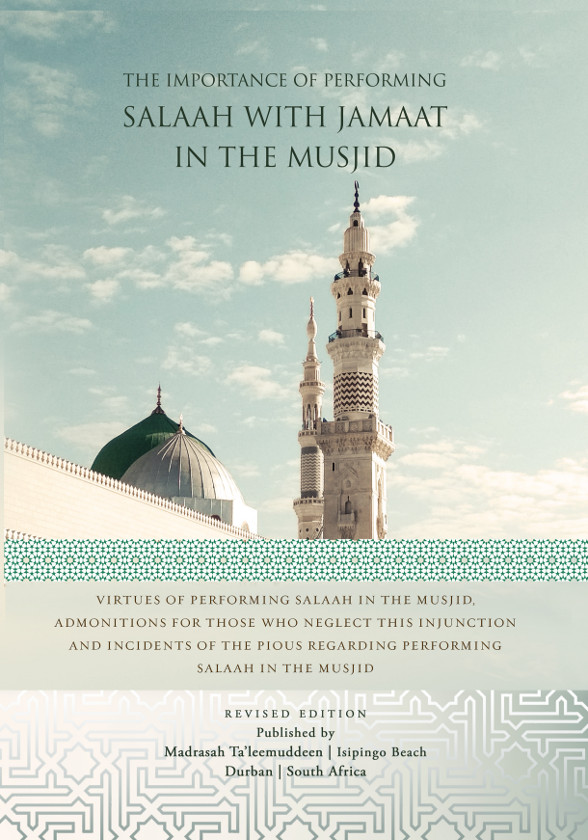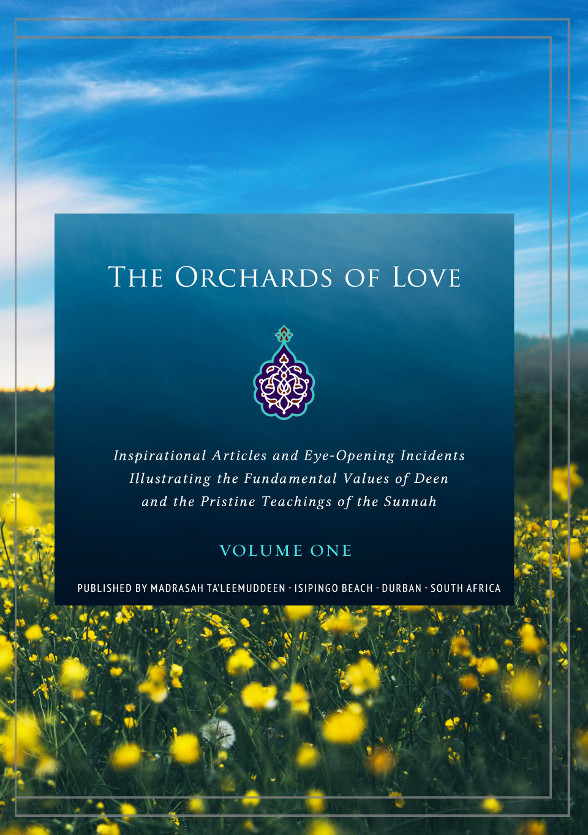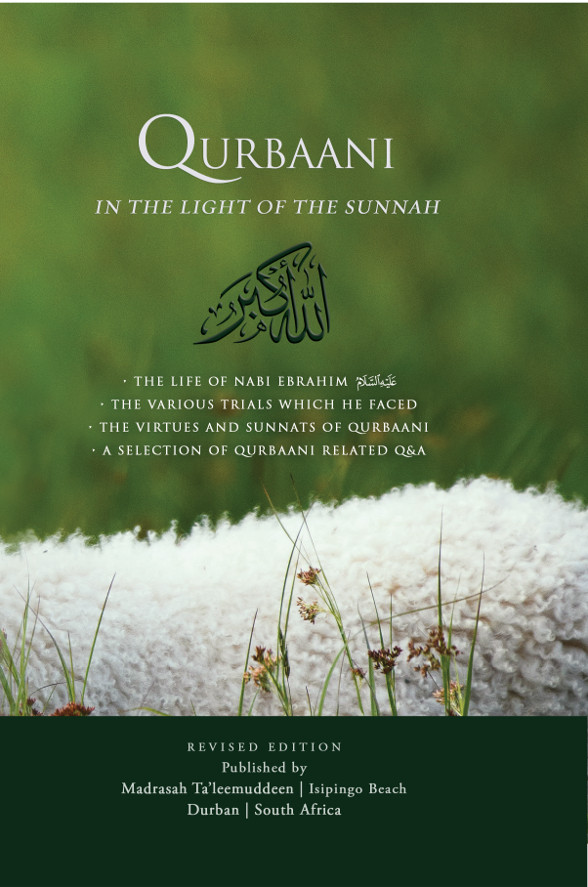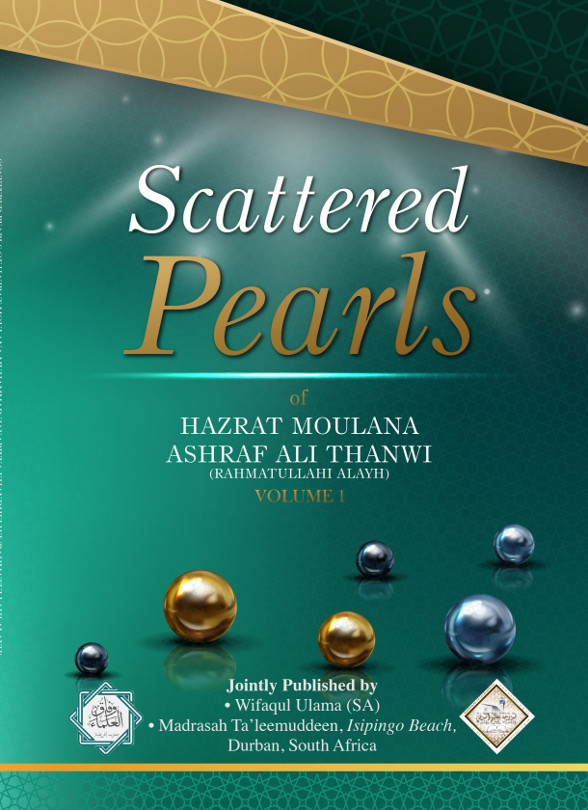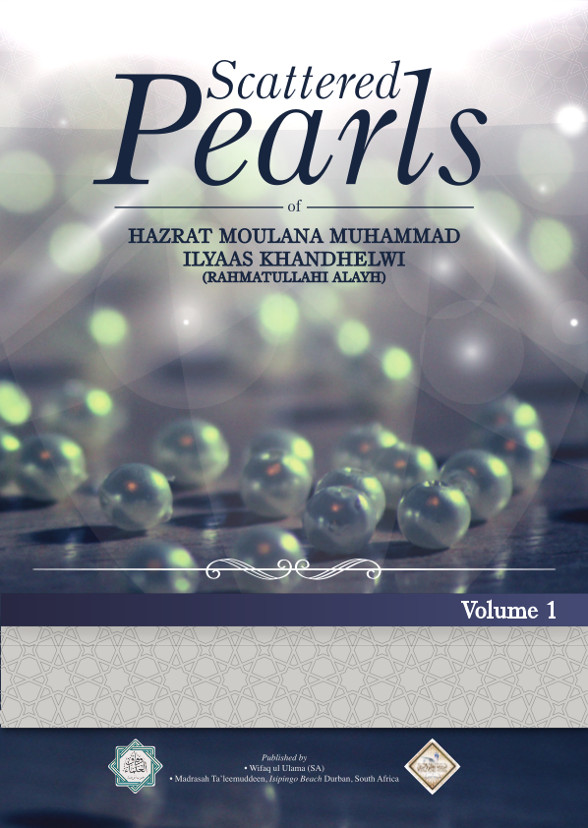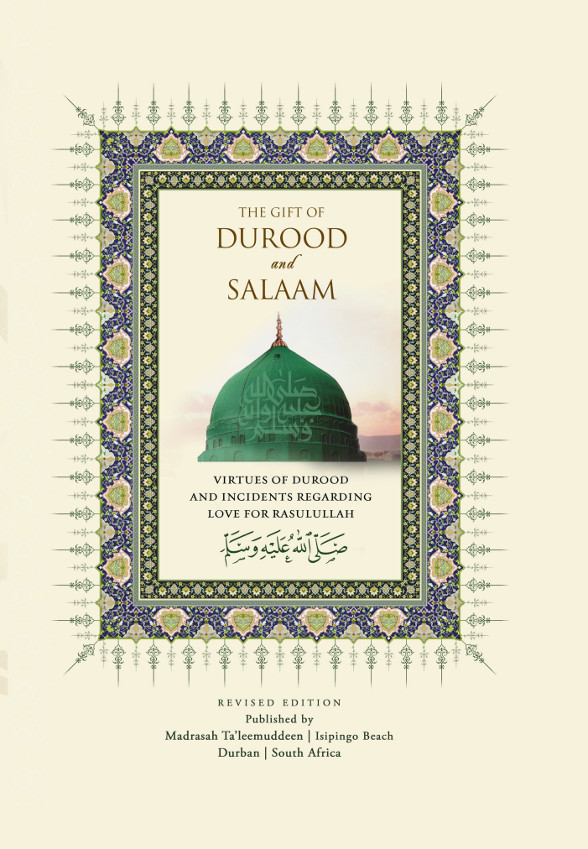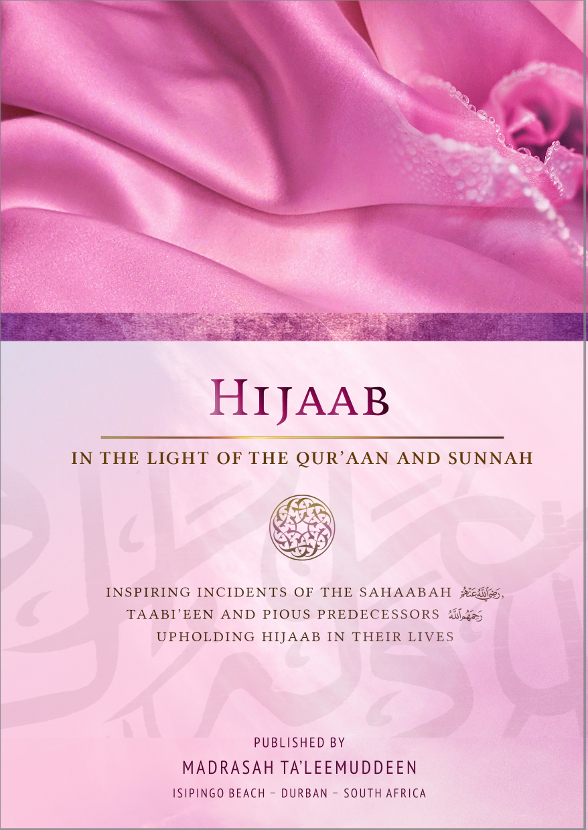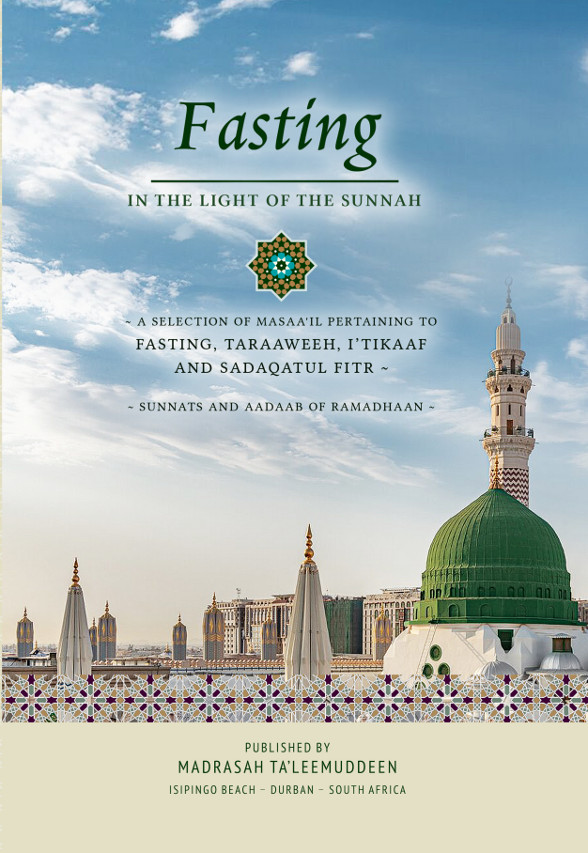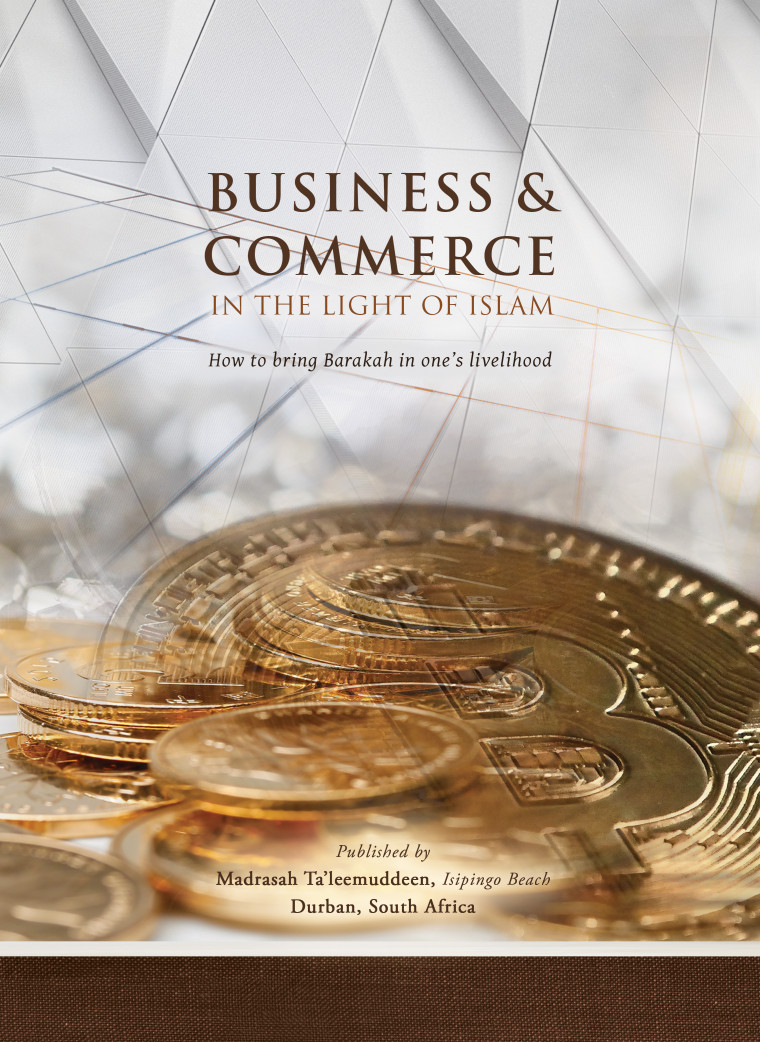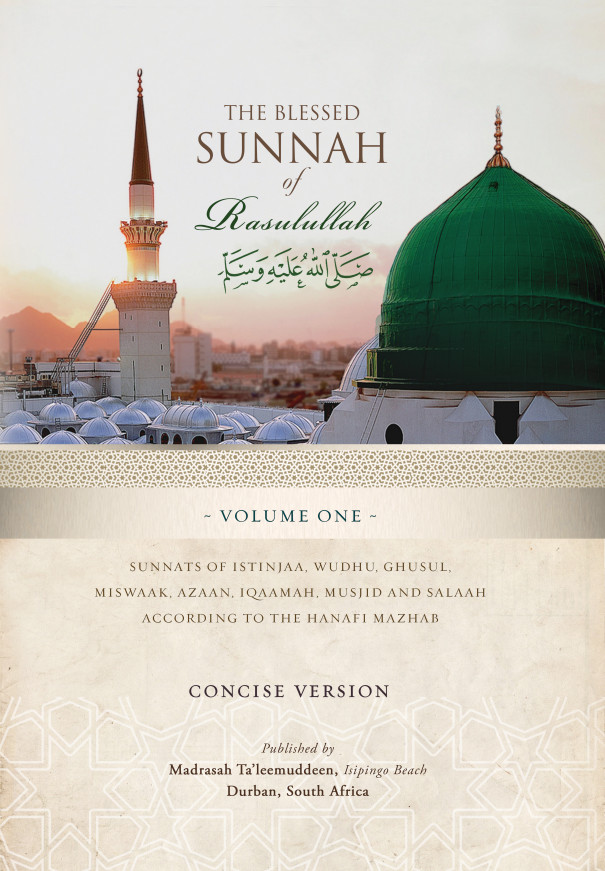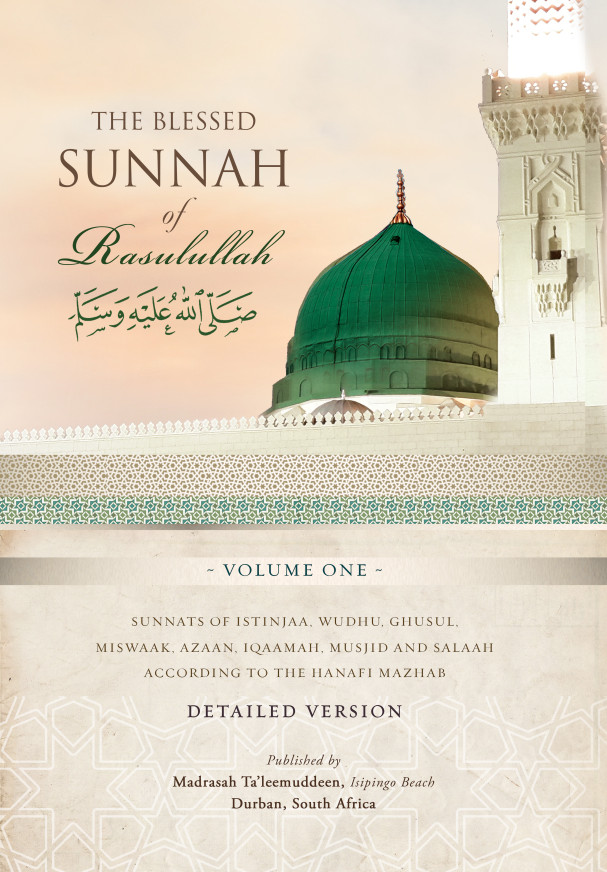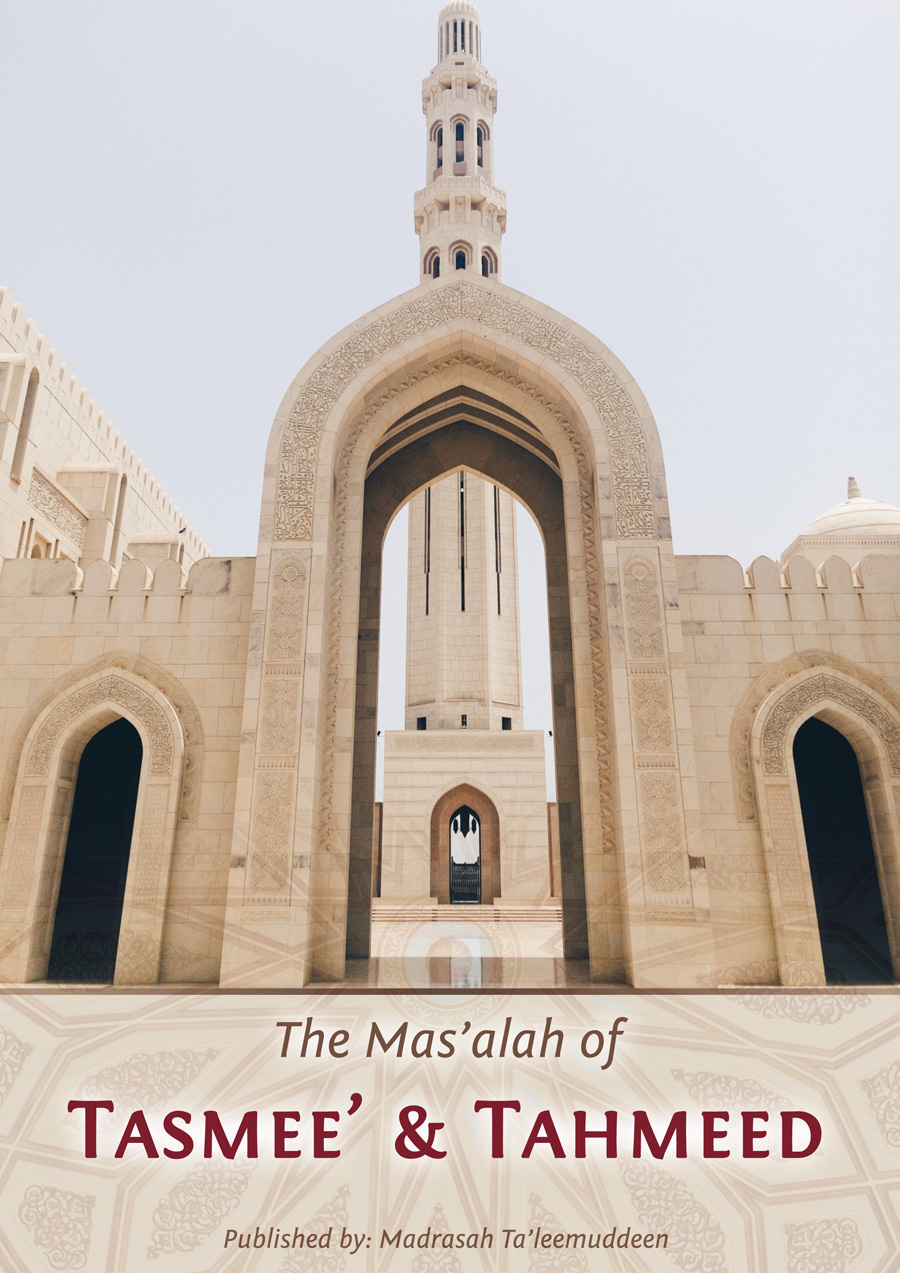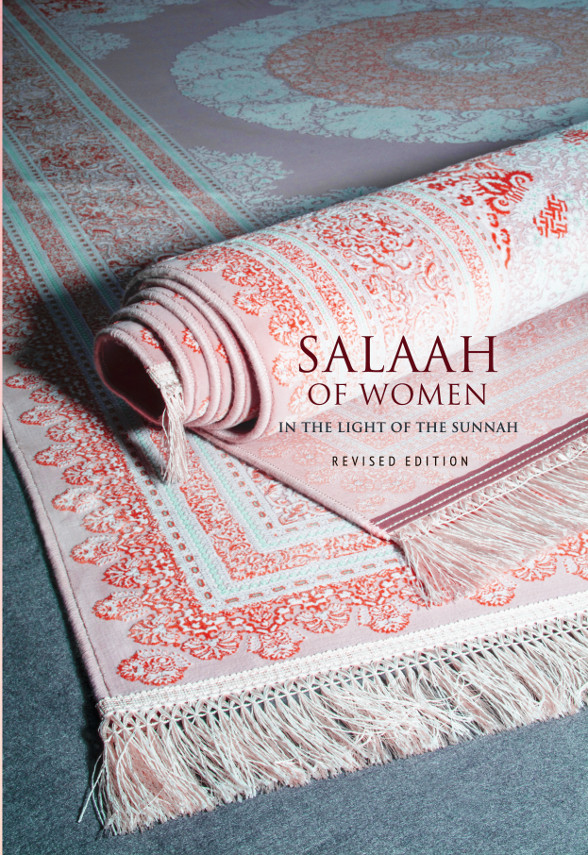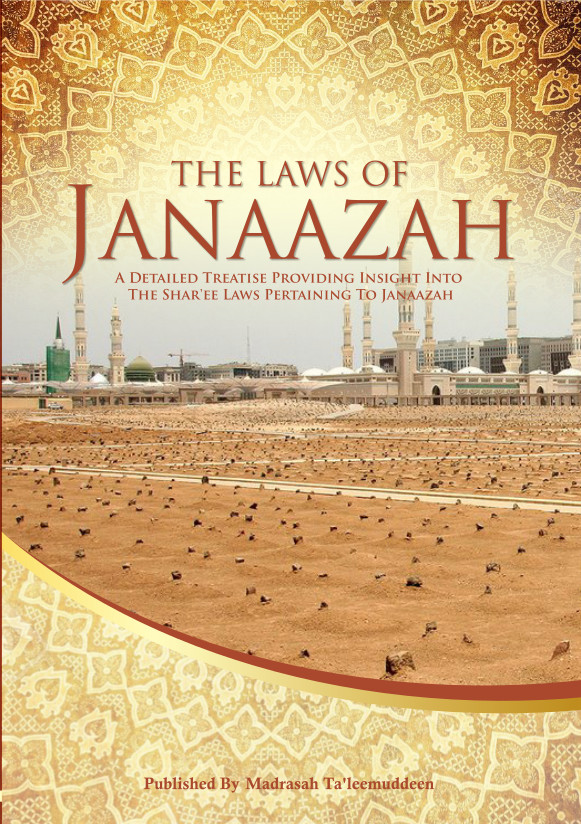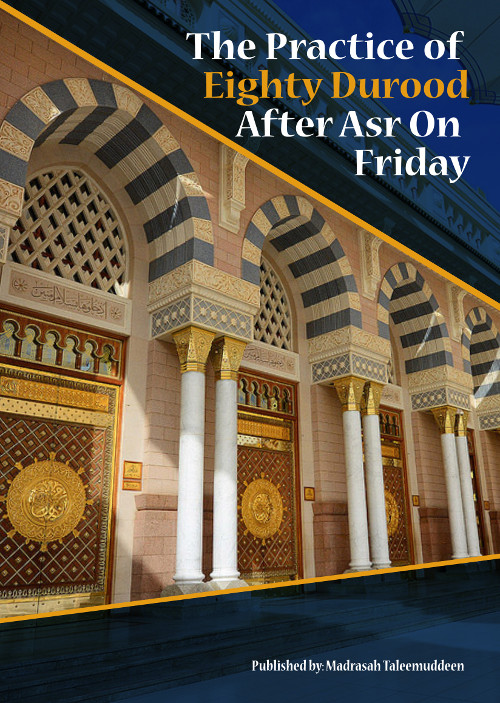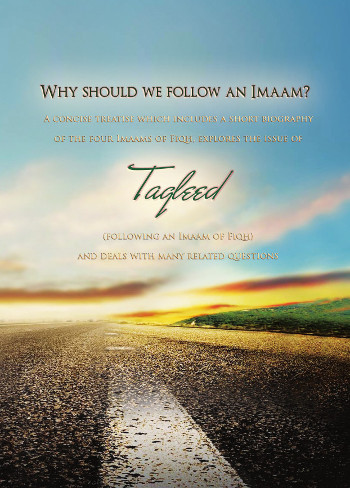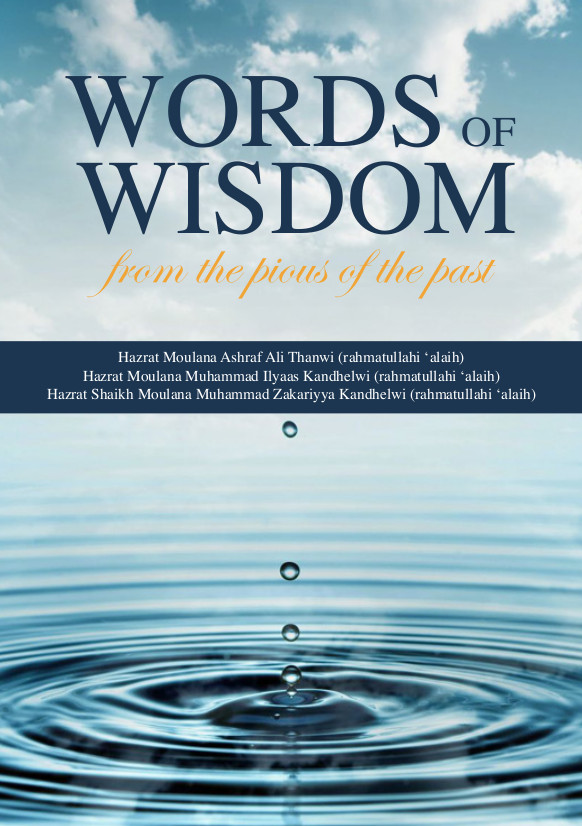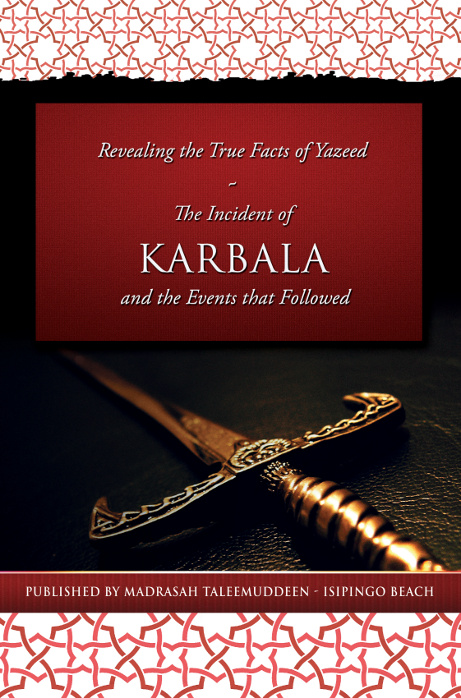Following one of the four Imaams of Fiqh
Q: Can you please present to me the proofs from the Qur’aan and Hadith that command us to follow one of the four Imaams of Fiqh?
I believe that we are all followers of Rasulullah (Sallallahu Alayhi Wasallam). Hence Allah Ta’ala obligated us to follow our beloved Rasulullah (Sallallahu Alayhi Wasallam). Rasulullah (Sallallahu Alayhi Wasallam) has said in his Mubaarak Hadith: “I leave behind two things; the Qur’aan and my Sunnah. As long as you hold firmly to these two; you will never go astray.”
From this Hadith, we understand that in solving our Deeni matters, we should directly refer to the Qur’aan and Hadith. Just as Ulama of the past made ijtihaad, why can't people who have knowledge of Arabic and have studied deen also make ijtihaad today and find solutions in modern day problems through referring directly to the Qur'aan and Hadith?
I do understand that if one is non-conversant in the Arabic language and thus unable to extract Shar‘i laws from the Qur’aan and Hadith, then he should refer to an Aalim of Deen. Why do people insist that every person should follow one of the four mazhabs of Fiqh?

A: Allah Ta’ala commands us in the Holy Qur’aan to refer our Deeni matters to people of knowledge. Allah Ta’ala says:
فَسئلوا أَهلَ الذِّكرِ إِن كُنتُم لا تَعلَمونَ
Ask the people of knowledge if you do not know. (Surah Nahl, 43)
From this verse, we conclude that each person is not obligated to refer directly to the Qur’aan and Hadith. Rather, he is commanded to refer the matter to a specialist. Furthermore, “consulting a specialist in the field” is not confined to Deeni matters. Instead, it is a common principle which is adhered to in worldly matters as well.
A patient who has to undergo a major heart operation refers to the most qualified and recognised heart surgeon available. Similarly, the victim who has to appear in court on account of alleged treason or suspected murder employs the services of a professional advocate to defend his case.
Each of the above (the patient and the victim) understands the seriousness of the situation and the fatal consequences that follow. They thus hand the matter over to the most capable person. Similarly, we need to understand that in matters of Deen, we ought to follow those who will correctly guide us to the straight path.
Allah Ta’ala says:
وَاتَّبِع سَبيلَ مَن أَنابَ إِلَىَّ
Follow the path of those who turn to Me. (Allah Ta'ala). (Surah Luqmaan, 15)
From this verse we understand that in matters of deen we are obligated to follow the one who will correctly guide us to Allah Ta’ala. If one takes an incapable person as his guide and thus incorrectly practises upon the laws of Shari‘ah, will such a person ever be absolved of his obligation in the court of Allah Ta’ala? Definitely not. Rather, he will be worthy of punishment for adopting the incorrect procedure in searching for the truth. Let us illustrate this point through a few examples from the Mubaarak life of Rasulullah (Sallallahu Alayhi Wasallam) and his illustrious Sahaabah (Radiyallahu Anhum). Some of these Ahaadith are:
1. Hadhrat Ali (Radiyallahu Anhu) reports that Nabi (Sallallahu Alayhi Wasallam) had dispatched an army and he appointed an ameer over them. During the course of the journey, the ameer became angry with the army. He thus lit a fire and instructed the Sahaabah (Radiyallahu Anhum) to enter it. In substantiation, he quoted the Hadith of Nabi (Sallallahu Alayhi Wasallam) which mentions that the ameer of the army must be obeyed. Some were contemplating over entering the fire whilst the others refused. When they reported the matter to Nabi (Sallallahu Alayhi Wasallam), he addressed those who were contemplating entering into the fire saying: “Had you leaped into the fire, you would have remained in it till the Day of Qiyaamah.” He further said to those who refused to enter the fire: “There is no obedience to the creation when it involves the disobedience of Allah Ta’ala. Obedience is only in good actions.”[1]
2. Imaam Sha’bi (Rahimahullah) reports: Hadhrat Adi bin Haatim (Radiyallahu Anhu) related to me that when the following aayah was revealed:
وَكُلوا وَاشرَبوا حَتّى يَتَبَيَّنَ لَكُمُ الخَيطُ الأَبيَضُ مِنَ الخَيطِ الأَسوَدِ مِنَ الفَجرِ
Eat and drink until the white thread of dawn appears to you distinct from its black thread. (Surah Baqarah, 187)
“I took two lengths of thread (one thread was black and the other white). I then placed both the threads beneath my pillow. I stared at the threads for a long time, expecting to see the white thread becoming more clear and visible from the black thread, so that I may then abstain from eating. However, the entire night passed until I came to Nabi (Sallallahu Alayhi Wasallam) in the morning and expressed what I had understood from the verse and what I had done during the night. Nabi (Sallallahu Alayhi Wasallam) smiled and remarked, “If the meaning of the verse is as you have understood, then your pillow is indeed very wide. For indeed the white and black threads mentioned in the verse refer to the brightness of the day and the darkness of the night.’”[2]
3. Hadhrat Jaabir (Radiyallahu Anhu) reports that they were once on a journey when a person amongst them was struck by a rock and suffered severe head injuries. He then experienced a wet-dream (thus requiring ghusl). He thus asked some of his companions if there was any concession for performing tayammum. They replied: “There is no concession for you since water is available.” This Sahaabi thus took a bath and passed away (as a result of making ghusl). When they returned and Nabi (Sallallahu Alayhi Wasallam) was informed of this, he said: “They killed him, may Allah kill them. Why couldn’t they enquire from those who were knowledgeable when they did not know? The cure of an ailing person (an ignorant person) is to ask. It was sufficient for him to only perform tayammum and bandage his wound. He could have then rubbed his moist hand over it and washed the rest of his body.”[3]
In the above-mentioned events, we notice that all the people involved were the Sahaabah of Rasulullah (Sallallahu Alayhi Wasallam), the first recipients of the Qur’aan. They were undoubtedly conversant in the Arabic language and referred to the Qur’aan. Furthermore, they were more knowledgeable than anyone of us present today. How was it that Rasulullah (Sallallahu Alayhi Wasallam) disapproved of what they had done and in certain cases (as witnessed above), he even reproached them severely?
However, there seems to be an outward inconsistency between these above-mentioned incidents and similar incidents where Rasulullah (Sallallahu Alayhi Wasallam) approved the actions of certain Sahaabah (Radiyallahu Anhum), though they erred in their judgement. Consider the incident of Bani Quraizah:
On the occasion of Khandaq, Nabi (Sallallahu Alayhi Wasallam) dispatched the Sahaabah (Radiyallahu Anhum) to go to Banu Quraizah. Nabi (Sallallahu Alayhi Wasallam's) explicit command to this group of Sahaabah (Radiyallahu Anhum) was that they should perform their Asr Salaah at Banu Quraizah. The Sahaabah (Radiyallahu Anhum) were en-route when the time of Asr was about to expire. A difference of opinion occurred between the Sahaabah (Radiyallahu Anhum) with regards to the performance of the Asr Salaah. One group felt that the Asr Salaah should not be delayed, but should rather be performed en-route, prior to the time expiring. They understood the instruction of Rasulullah (Sallallahu Alayhi Wasallam) “None of you should perform his salaah except in Banu Quraizah” to mean, “Hasten so that you may reach Banu Quraizah at the time of Asr. Hence the Asr Salaah should not be made qadhaa.” On the other hand, the second group of Sahaabah (Radiyallahu Anhum) held the opinion that the Asr Salaah should be performed at Banu Quraizah, even though the Salaah is made qadhaa, as this was complying with the explicit command of Rasulullah (Sallallahu Alayhi Wasallam). When Nabi (Sallallahu Alayhi Wasallam) was later informed of the difference between the Sahaabah (Radiyallahu Anhum), he approved the actions of both groups.
The answer to this inconsistency is that there were Mujtahideen amongst the two groups of Sahaabah (Radiyallahu Anhum). Further, it is permissible for a Mujtahid to employ his Ijtihaad in reaching a conclusion. This answer can be understood from the Hadith of Rasulullah (Sallallahu Alayhi Wasallam):
عن أبي هريرة رضي الله عنه قال قال رسول الله صلى الله عليه و سلم إذا حكم الحاكم فاجتهد فأصاب فله أجران وإذا حكم فأخطأ فله أجر واحد [4]
Hadhrat Abu Hurairah (Radiyallahu Anhu) has mentioned that Rasulullah (Sallallahu Alayhi Wasallam) said: “When a haakim (Mujtahid) issues a correct verdict by means of Ijtihaad, he shall receive two rewards and if he errs, he shall receive one reward.”
From this Hadith, we learn that the right of making Ijtihaad is reserved for a Mujtahid. Other than a Mujtahid, any person who interferes in the matters of Deen and reaches an erroneous conclusion will be sinful on account of taking the law into his own hands. On the other hand, if a person refers the matter to a Mujtahid (one possessing the highest levels of understanding and capability) and he errs in his judgment, both will be absolved in the court of Allah Ta’ala based on the above Hadith. So we conclude that this Hadith and the Hadith of Banu Quraizah are with reference to a Mujtahid, not an ordinary muqallid.
At this juncture, the question that arises is ‘Who will then qualify as a Mujtahid?’ Before explaining the definition of a Mujtahid, it is imperative for us to comprehend the different levels and classes of people in regard to potentials and capabilities so that we will understand the exalted position of a Mujtahid in Shari‘ah.
In regard to the knowledge of Deen, people can be categorized into three classes:
The first class of people are those who possess the basic knowledge of Shari‘ah. (e.g. Aapas in the Maktabs or Huffaaz who have memorised the Qur’aan without studying its meaning). This category’s obligation is to impart the basic fundamentals of Deen which they have learnt. Nabi (Sallallahu Alayhi Wasallam) has said:
بلغوا عني ولو آية [5]
Since this class of believers have not acquired sufficient Deeni knowledge to guide others in all branches of Deen, it is impermissible for them to issue Fatwas and verdicts of Shari‘ah. Furthermore, since the knowledge of Deen which they are imparting is confined and restricted, there is no possibility of any addition from their side. There is thus no fear of any change or distortion entering Deen. However, in the more intricate matters of Shari‘ah, they should refer to those above them who are more qualified.
The second class of people are those who have pursued Deeni knowledge in Madrasahs and institutes under qualified, expert scholars. This class of people, after qualifying as Ulama, are in the position to issue Islamic verdicts. It should be borne in mind that this class of people, though far senior to the first class, are however limited in their capabilities and potentials which are far lower than the potential of the third class. The most that can be said about this class is that they have acquired the ability to access the meanings of the Qur’aan and Hadith and convey the message of both (Qur’aan and Hadith) to the Ummah. This is applicable to the Ulama of this era. As for the Ulama of the past, there were people amongst them who possessed great treasures of knowledge e.g. Imaam Tahaawi, Hafiz Ibnu Hajar Asqalani, Allamah Nawawi (Rahimahullah) etc. However, despite them having such vast knowledge, when it came to extracting the hidden meanings of the aayaat and Ahaadith, they admitted their incapability and saw the need of following the A’immah-e-Mujtahideen.
Nabi (Sallallahu Alayhi Wasallam) said:
رب حامل فقه إلى من هو أفقه منه
There are many who disseminate Fiqh to those more learned than them.
رب حامل فقه ليس بفقيه [6]
There are many who possess the knowledge of Fiqh though they do not have the expertise in Fiqh.
From these Ahaadith, we understand that a person possessing a lot of Fiqh does not necessarily mean that he will be able to access the hidden meanings contained therein. Hence when it comes to the aspect of extracting laws and deducing masaa’il or finding amicable solutions for newly developed situations of contemporary issues, they are incapable of carrying out this great, mammoth task and are highly dependent upon the knowledge of the third class.
The third class of people are the Mujtahideen. Their level of intelligence and understanding allowed them to deduce and source out numerous masaa’il directly from the Qur’aan and Hadith. To give us a glimpse of the calibre of the third class, the statement of Imaam Ahmad bin Hambal (Rahimahullah) is quite sufficient.
A man once asked Imaam Ahmad bin Hambal (Rahimahullah): “If a person memorises 100 000 Ahaadith, can he qualify as a Faqeeh (jurist)?” He replied: “No.” The person asked: “What about 200 000?” The Imaam (Rahimahullah) once again replied: “No.” The man again said: “Then 300 000?” The Imaam (Rahimahullah) replied in the negative once more. The man said: “And 400 000?” This time, he shook his palm, indicating that such a person may probably now be a Faqeeh, fit enough to pass a Fatwa on his own accord.[7]
We thus conclude that the right to directly deduce and extract masaa’il from the Qur’aan and Hadith is reserved for the Mujtahideen and exclusive to them. As for those lower than them in knowledge and understanding, and the laymen, it is incumbent that they follow the deductions of these Mujtahideen.
And Allah Ta'ala (الله تعالى) knows best.
[1]عن علي أن النبي صلى الله عليه وسلم بعث جيشا و أمّر عليهم رجلا فأوقد نارا فقال ادخلوها فأرادوا أن يدخلوها فقال آخرون إنما فررنا منها فذكروا للنبي (صلى الله عليه وسلم) فقال للذين أرادوا أن يدخلوها لو دخلوها لم يزالوا فيها إلى يوم القيامة و قال للآخرين لا طاعة في معصية الله إنما الطاعة في المعروف (صحيح البخاري، الرقم: 7257)
[2]عن الشعبي أخبرني عدي بن حاتم قال لما نزلت هذه الآية وكلوا واشربوا حتى يتبين لكم الخيط الأبيض من الخيط الأسود عمدت إلى عقالين أحدهما أسود والآخر أبيض قال فجعلتهما تحت وسادتي قال فجعلت أنظر إليهما فلا تبين لي الأسود من الأبيض ولا الأبيض من الأسود فلما أصبحت غدوت على رسول الله صلى الله عليه وسلم فأخبرته بالذي صنعت فقال إن وسادك إذا لعريض إنما ذلك بياض النهار وسواد الليل (تفسير ابن كثير 1/513)
عن الشعبي عن عدي بن حاتم قال لما نزلت هذه الآية حتى يتبين لكم الخيط الأبيض من الخيط الأسود قال أخذت عقالا أبيض وعقالا أسود فوضعتهما تحت وسادتي فنظرت فلم أتبين فذكرت ذلك لرسول الله صلى الله عليه وسلم فضحك فقال إن وسادك لعريض طويل إنما هو الليل والنهار وقال عثمان إنما هو سواد الليل وبياض النهار (سنن أبي داود، الرقم: 2349)
[3] عن جابر قال خرجنا في سفر فأصاب رجلا منا حجر فشجه في رأسه ثم احتلم فسأل أصحابه فقال هل تجدون لي رخصة في التيمم فقالوا ما نجد لك رخصة وأنت تقدر على الماء فاغتسل فمات فلما قدمنا على النبي صلى الله عليه وسلم أخبر بذلك فقال قتلوه قتلهم الله ألا سألوا إذ لم يعلموا فإنما شفاء العي السؤال إنما كان يكفيه أن يتيمم ويعصر أو يعصب شك موسى على جرحه خرقة ثم يمسح عليها ويغسل سائر جسده (سنن أبي داود ، الرقم: 336)
[4] عن أبي هريرة قال: قال رسول الله صلى الله عليه وسلم: «إذا حكم الحاكم فاجتهد فأصاب، فله أجران، وإذا حكم فأخطأ، فله أجر واحد (سنن الترمذي، الرقم: 1326)
[5] عن عبد الله بن عمرو أن النبي صلى الله عليه وسلم قال بلغوا عني ولو آية وحدثوا عن بني إسرائيل ولا حرج ومن كذب علي متعمدا فليتبوأ مقعده من النار (صحيح البخاري، الرقم: 3461)
[6] أخبرنا عمر بن سليمان من ولد عمر بن الخطاب قال سمعت عبد الرحمن بن أبان بن عثمان يحدث عن أبيه قال خرج زيد بن ثابت من عند مروان نصف النهار قلنا ما بعث إليه هذه الساعة إلا لشيء يسأله عنه فقمنا فسألناه فقال نعم سألنا عن أشياء سمعناها من رسول الله صلى الله عليه وسلم سمعت رسول الله صلى الله عليه وسلم يقول نضر الله امرأ سمع منا حديثا فحفظه حتى يبلغه غيره فرب حامل فقه إلى من هو أفقه منه ورب حامل فقه ليس بفقيه (سنن الترمذي، الرقم: 2656)
[7] وقال في رواية محمد بن عبيد الله بن المنادي وقد سمع رجلا يسأله إذا حفظ الرجل مائة ألف حديث يكون فقيها قال لا قال فمائتي ألف قال لا قال فثلاثمائة ألف قال لا قال فأربعمائة ألف قال بيده هكذا وحركها (إعلام الموقعين 4/158)
Answered by:
Checked & Approved:



